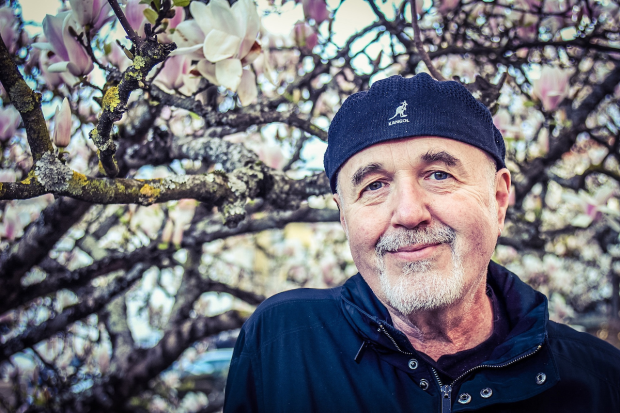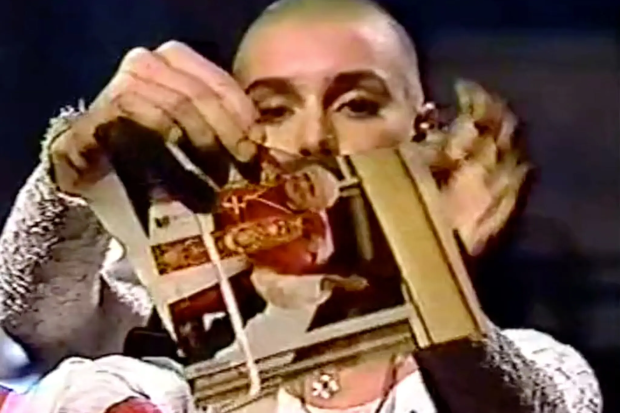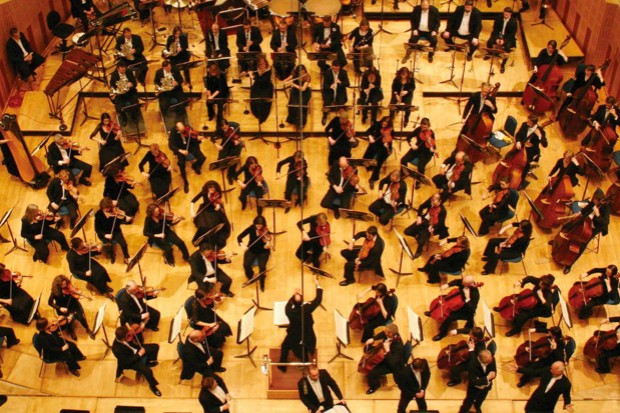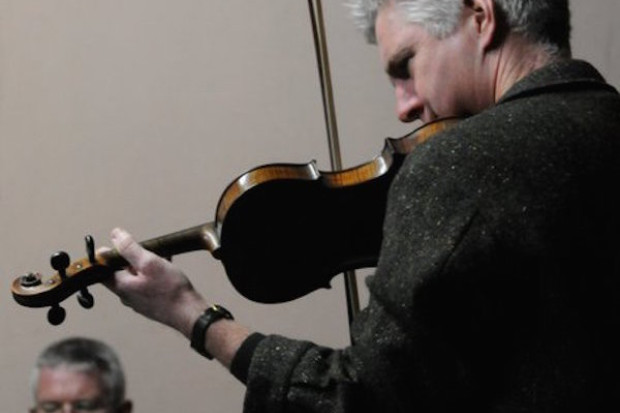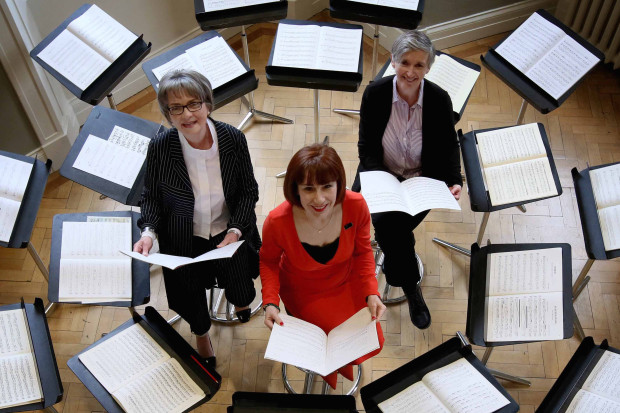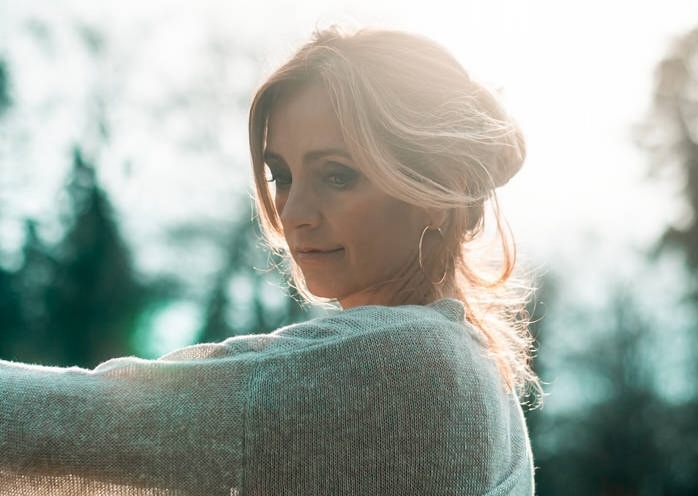
Cara Dillon
New Books on Irish Music (February 2024)
Coming Home
Cara Dillon
Charcoal Press, February 2024
Launched last week in Dublin and Belfast, Coming Home is a collection of stories, reflections and poems that accompanies singer Cara Dillon’s new album of the same name. Born in Dungiven in Co. Derry, the youngest of six, Dillon performed with De Dannan as a teenager and subsequently signed to the Rough Trade label, releasing the first of nine solo recordings in 2001. She formed a musical partnership with her husband, English folk singer Sam Lakeman, and has won numerous awards, including BBC Folk Awards and a Meteor Music Award. Coming Home developed during the Covid-19 pandemic in 2020. Dillon writes: ‘For the first time in God knows how long, I didn’t have to think about “the next thing”, whether it was a concert, a recording session, or the countless jobs that constantly need attention when you’re a busy, working mother of three. What happened next was both totally unexpected, and immensely fulfilling.’ She began writing poems and stories from her life, and without any real plan, Lakeman began adding music. The new album is a collection of the poems with accompanying music, while the book is a mix of remembrances, poems and stories from her childhood and musical career.
Visit www.caradillon.co.uk/shop/book or https://caradillon.bandcamp.com.
Our Dear Dark Mountain with the Sky Over It: The James Whiteside Collection
Seán McElwain
Dark Mountain Publications, November 2023
Our Dear Dark Mountain with the Sky Over It: The James Whiteside Collection by Seán McElwain is a 176-page illustrated hardback containing the tune collection of Monaghan musician James Whiteside as well as biographical and historical information. Born in 1844, Whiteside was from Knockatallon, Co. Monaghan, and his original manuscript apparently contained almost two hundred tunes collected in the Sliabh Beagh area in the second half of the nineteenth century, providing a unique snapshot of the musical practices of the area. Whiteside subsequently moved to Bray, Co. Wicklow, in 1886 and became a teacher at St Cronan’s school. He often played and sang for the public on the Esplanade, earning the name ‘The Bard of Bray’.
Whiteside and his collection are mentioned in Francis O’Neill’s Irish Music and Musicians, and part of his tune collections also featured in the collections of P. W. Joyce. However, the original manuscript was assumed lost until McElwain, while touring the US with the band Téada, met Rev. Austin Murray. The Reverend looked among the papers of his father – Eamonn Murray, a musician from the north Monaghan region – and discovered a manuscript with 131 of the tunes. This book contains that Whiteside manuscript as well as tunes used by Joyce and a number of Whiteside’s own compositions. The publication follows a 2014 recording of the same name that features a number of the tunes played by McElwain and friends.
Visit https://oddm.ie.
Click on the image below to listen.
The Guidebook to Self-Releasing Your Music: A Guide for Composers, Sound Artists and Performers
Matthew Whiteside
January 2024
Composer, producer and promoter Matthew Whiteside’s new guidebook is the result of practical experience and also giving seminars on the topic of self-releasing your music. From Northern Ireland, Whiteside is now based in Scotland and the guide references some UK resources, but it will be of use to anyone interested in the topic. The guidebook covers everything from choosing producers, engineers and musicians to raising funds, budgeting, managing recording sessions, royalties, distribution and marketing. There is also a second part with some thoughts on the current music industry.
The guidebook is available as a paperback (€15) and an ebook (€10). Visit www.matthewwhiteside.co.uk/product/self-release-guide-book.
What Ireland Can Teach the World About Music – and other essays
Toner Quinn
The Journal of Music, February 2024
The Journal of Music editor’s new book is a collection of essays and articles written over the past two decades about the multi-faceted world of Irish music. Most were published in the Journal of Music, but there are also radio essays and talks and together they explore a range of music and artists, from Martin Hayes and Jennifer Walshe to Mícheál Ó Súilleabháin and Sinéad O’Connor. The book is divided into four sections: pieces from the first decade of the magazine; a selection from the period from 2014 up to 2020 that explored the new experimentation in Irish music; articles and essays written during the Covid-19 pandemic; and a fourth section that sets out some ideas for the future.
What Ireland Can Teach the World About Music was launched by Martin Hayes at the Irish Traditional Music Archive in January and is now available from the Journal of Music shop.
The Art of the Unspoken: Rhetorical Devices, Linguistic Parallels and the Influence of the Singing Voice in Classical and Romantic Piano Literature
Gabriela Mayer
Peter Lang, October 2023
Gabriela Mayer is a pianist, pedagogue and researcher. She studied piano performance at the Hochschule für Musik Hanns Eisler Berlin and subsequently completed a Doctorate in Musical Arts at the University of Maryland in the USA. Mayer is now Head of Department of Keyboard Studies at the MTU Cork School of Music. Hew new book, The Art of the Unspoken, launched recently in Cork by pianist Barry Douglas, explores a performance framework that brings together rhetorical and dramatic traditions that were once shared by Classical and Romantic composers, performers and pedagogues but have gradually fallen into obscurity. Mayer presents historical and aesthetic detail along with literary and musical aspects to inform current practice.
Visit www.gabrielamayerpiano.com.
Harp Studies II: World Harp Traditions
Edited by Helen Lawlor and Sandra Joyce
Four Courts Press, February 2024
Harp Studies II: World Harp Traditions is a second volume following Harp Studies from the same editors in 2016. This new and larger volume contains 17 essays, several of which explore aspects of Irish harping, but numerous others have an international dimension. ‘The impetus to create this volume,’ write the editors, ‘arose after many years immersed in the study of music in Ireland and through interacting with colleagues around the globe studying not just harping, but traditions of music indigenous to many different places and contexts.’
Among the contributions are Deirdre Nic Chárthaigh discussing a bardic tribute poem about a late sixteenth century or early seventeenth century Westmeath harper, Tadhg Ó Cobhthaigh; Mary Louise O’Donnell with a study of three foreign virtuoso pedal harpists who performed, taught and resided in Dublin in the latter half of the nineteenth century; Lia Lonnert and Helen Davies on Swedish harp virtuoso Adolf Sjödén and the months he spent in Ireland in 1879; Cormac de Barra’s study of the twentieth-century Dublin harpers Máirín and Róisín Ní Shéaghdha; Sandra Joyce on the influence of Roman Catholic nuns on music in Ireland; Niall Keegan writing about the Irish harp tradition and how it has been on a journey to become more ‘traditional’ by adopting the engendered language and value systems of the wider tradition; Helen Lawlor discussing the development of harp ensembles in Ireland; Haley Hodson explores the early harps in the Philharmonie de Paris harp collection; Caitríona Cannon writes about the decline and re-emergence of the harping tradition in Viggiano in Italy; Tristan le Govic presents a study of the revival of the Celtic harp in Brittany; Neil Wood and Joshua Dickson with a chapter on the revival of the Scottish harp; Salomé Strauch and Sylvie le Bomin with a study of harps in Central Africa; Susanne Fürniss exploring the ngueme harp in southern Cameroon; Rémy Jadinon on the ngombi harp of Gabon; Paulla A. Ebron discussing the West African kora; Lucie Rault with an historical survey of harps in Asia; and Benjamin Fairfield and Chi Suwichan Phattanaphraiwan discuss the tehnaku harp of the Karen people of Burma and Thailand.
Harp Studies II: World Harp Traditions will be launched at the Irish World Academy at the University of Limerick on 4 March.
Visit www.fourcourtspress.ie/books/2021/harp-studies-ii.
Music Education for the Twenty-First Century: Legacies, Conversations, Aspirations
Edited by John O’Flynn and Patricia Flynn
Cork University Press, October 2023
Music Education for the Twenty-First Century: Legacies, Conversations, Aspirations is the first in a new series titled Studies in Irish Music Education. The aim of the series is to bring together, for the first time, academic work on music education in, or relating to, Ireland, and to promote further scholarship.
This inaugural volume contains ten essays and is divided into three parts as per the book’s subtitle. Among the contributions is a chapter by the late Mícheál Ó Suilleabháin with Helen Phelan. It includes the extant text from his keynote at the annual conference of the Society for Music Education in Ireland in 2013, as well as his last piece of academic writing – an acceptance speech when he was bestowed honorary life membership by the Society. These 2013 and 2018 texts function as anchor points for the chapter and explore the evolution of the Irish World Academy – which he founded in 1994 – from the mid-1990s to the 2010s.
Music Education for the Twenty-First Century also includes Gwen Moore discussing the Music Education National Debate (MEND) conferences that took place in Dublin between 1994 and 1996 and the subsequent report written by Frank Heneghan; Harry White reflects on the Leaving Certificate Music Syllabus; Keith Swanwick explores trends and directions in music education from the 1930s to the early twenty-first century; John O’Flynn considers music as an area of humanities in higher education; O’Flynn also interviews David Elliott, author of Music Matters: A New Philosophy of Music Education; Mary Lennon’s chapter revisits MEND and explores the nature of the discourse around instrumental/vocal music education; Patricia Flynn discusses the development of the Music Generation national music education programme; Randall Everett Allsup asks what we can learn about teaching music from the experience of the pandemic; and Marie McCarthy presents a chapter on fostering research in Irish music education. The book also contains an appendix of dissertations and theses relating to music education studies in Ireland compiled by O’Flynn.
Visit www.corkuniversitypress.com/9781782055792/music-education-for-the-twenty-first-century.
For our November 2023 round-up of recent books, see here.
Subscribe to our newsletter.
Published on 26 February 2024











